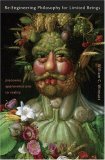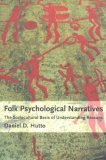February 20, 2008
Maybe it’s a little off-topic but I couldn’t pass by without mentioning Sharp Teeth by Toby Barlow, a verse novel about werewolves(!), the subject of the review of the day at Powell’s.
 Website for the book.
Website for the book.
Meanwhile at Metapsychology Online Reviews, From Knowledge to Wisdom gets an enthusiastic endorsement.

Comments (1)
- fiction,new books,philosophy of mind
January 17, 2008
Benoit Hardy-Vallée of the University of Toronto Department of Philosophy has posted the first chapter of a free e-book, ‘The Philosophy of Social Cognition.’ The chapter topic is “The Other Minds.”
Comments (0)
- cognitive science,philosophy of mind
January 15, 2008
By a roundabout way I came across this book: Re-Engineering Philosophy for Limited Beings: Piecewise Approximations to Reality by William C. Wimsatt (Harvard U Press, 2007) – reviewed at Notre Dame Philosophical Reviews and at Metapsychology
by William C. Wimsatt (Harvard U Press, 2007) – reviewed at Notre Dame Philosophical Reviews and at Metapsychology

Harvard University Press page & excerpt
In an interview Wimsatt says:
“Complex systems are messy …And human beings make errors trying to understand them. That’s OK. The goal should not be to eliminate errors, but to recognize and metabolize them.”
That is because, Wimsatt explains, “humans and organisms are engineered to be error-tolerant but still reliable. We learn, and re-engineer to do better. Evolved systems are complex and chaotic, but nonetheless ordered and robust.”
Comments (1)
- philosophy of mind,reality
January 10, 2008
Recently issued by MIT Press: Folk Psychological Narratives: The Sociocultural Basis of Understanding Reasons (Bradford Books) by Daniel C. Hutto.
by Daniel C. Hutto.

From the book description:
Established wisdom in cognitive science holds that the everyday folk psychological abilities of humans–our capacity to understand intentional actions performed for reasons–are inherited from our evolutionary forebears. In Folk Psychological Narratives, Daniel Hutto challenges this view (held in somewhat different forms by the two dominant approaches, “theory theory” and simulation theory) and argues for the sociocultural basis of this familiar ability. He makes a detailed case for the idea that the way we make sense of intentional actions essentially involves the construction of narratives about particular persons. Moreover he argues that children acquire this practical skill only by being exposed to and engaging in a distinctive kind of narrative practice.
Hutto calls this developmental proposal the narrative practice hypothesis (NPH). Its core claim is that direct encounters with stories about persons who act for reasons (that is, folk psychological narratives) supply children with both the basic structure of folk psychology and the norm-governed possibilities for wielding it in practice. In making a strong case for the as yet underexamined idea that our understanding of reasons may be socioculturally grounded, Hutto not only advances and explicates the claims of the NPH, but he also challenges certain widely held assumptions. For example, he targets the idea that the primary function of folk psychology is to enable us to predict the behaviors of others. In this way, Folk Psychological Narratives both clears conceptual space around the dominant approaches for an alternative and offers a groundbreaking proposal.
Amazon has “Search Inside the Book” for this title.
Comments (0)
- cognitive science,culture,new books,philosophy of mind,psychology
January 8, 2008
Included in the new batch of Metapsychology reviews are a review of ‘The Self?,‘ a collection of papers edited by Galen Strawson (Wiley-Blackwell, 2005), and a review of ‘Human Nature: The Categorical Framework’ by P.M.S. Hacker (Wiley-Blackwell 2007).


Comments (0)
- philosophy of mind,self








